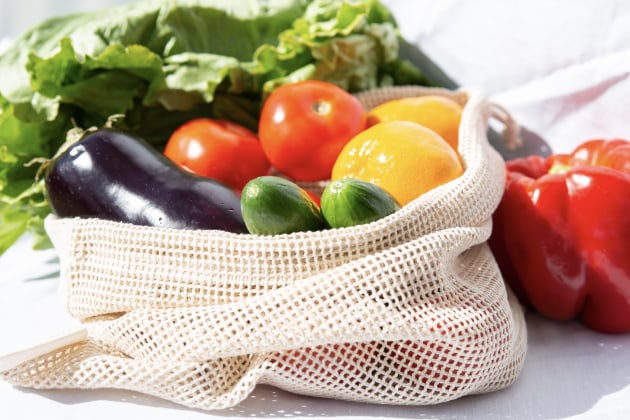Copar has launched a range of certified organic cotton mesh produce bags, called Eco Mesh, which the company says are designed to make grocery trips more sustainable without sacrificing style or convenience.
The Eco Mesh bags are the latest offering from Copar, who specialise in manufacturing sustainable packaging solutions from organic waste. The bags were displayed on the company’s stand at the recent Hort Connections, held in Adelaide, along with other sustainable solutions such as wheat straw-based packaging.

The bags are made with an expandable mesh design, which Copar says is compact and easy to carry wherever you go. As the bag is filled with produce, it expands to accommodate all your groceries up to 15kg. Eco Mesh is also designed to make a positive impact on the environment. It's durable, reusable and hand washable design makes it a sustainable choice, reducing waste and promoting a more circular economy.
Copar says Eco Mesh bags are crafted in India from certified organic cotton, meeting the rigorous standards set by renowned organisations such as GOTS (Global Organic Textile Standard), OEKO-TEX, and TUV Nord SA 8000. These certifications ensure that the bags are made from organic cotton, free from harmful substances, and adhere to ethical production practices. The company says the TUV Nord SA 8000 certification further highlights its dedication to social responsibility, guaranteeing fair and safe working conditions throughout the supply chain.
Hear more about Copar's wheat-straw based innovation and other packaging solutions in this PKN podcast episode, where Lindy Hughson speaks about promising alternatives to plastic packaging, with Jackson Sobb, CEO, and Colin Farrell, director-business development. Aside from the Eco Mesh bags, Copar’s products are all produced locally in Australia.






